Spring is here! As the temperatures increase and weather improves, many of us are drawn to the outdoors. But what if your trip to the beach could be more than just an enjoyable day? What if you could do scientific research at the same time?
Citizen science, sometimes called community science, is a partnership between the public and professional scientists where anyone can have a role in the scientific process. Opportunities for the public most often come in the form of data collection, but they can also include providing input on questions to investigate, participating in study design, or interpreting and sharing results. Several projects funded through the NOAA Marine Debris Program (MDP) have tapped into this community resource as well, and committed stewards around the country have contributed invaluable data to monitoring and research projects that support our vision of a sea free of debris.
No Butts About It
Some people are surprised to find out that one of the most commonly found marine debris items in their area is not plastic bottles, takeout containers, or straws, but cigarette butts. In 2018, over 5.7 million cigarette butts were found on beaches during the International Coastal Cleanup. Although cigarette butt litter seems to be socially acceptable, these pesky problems are actually made of cellulose acetate, a plastic-like material. This means that, just like other forms of plastic, cigarette butts won’t biodegrade. And as they persist in our water, beaches, and urban environments, they can leach out toxins into the environment or be ingested by wildlife.
Surfrider Foundation volunteers in San Francisco found an average of 6,500 cigarette butts at every two-hour cleanup event. Armed with the data gathered by these community members, Surfrider San Francisco and its partners are working to design and implement a comprehensive program to reduce cigarette butt litter in the San Francisco Bay Area. They’ve installed disposal “buttcan” receptacles, designed and distributed pocket ashtrays, spread awareness with posters and videos, and more, all to get everyone to “Hold on to Your Butt.”
Properly Throwing Away Our Shot
Some citizen science efforts use data from around the world. But sometimes these efforts can zero in on problems much closer to home. That’s what happened when volunteers at the Greater Farallones National Marine Sanctuary (NMS) participated in the Marine Debris Monitoring and Assessment Project (MDMAP), a NOAA citizen science initiative that engages partners and volunteers across the nation to survey and record the amount and types of marine debris on shorelines. While monitoring shorelines with MDMAP, volunteers at the Greater Farallones NMS noticed the frequency of a unique type of debris along their shorelines: shotgun wads. These plastic pieces, which separate shot from powder inside a shotgun shell, are one of the most common recognizable plastic items on surveyed shorelines in the Greater Farallones NMS. This knowledge quickly translated into the power to drive local change.
Armed with the debris data collected by citizen scientists, Greater Farallones NMS and a number of partners came together to investigate the issue and pursue solutions. First, they needed to know more about why shotgun wads are littered so often. A subsequent survey of hunters revealed that 80% were unaware of the issue of shotgun wad debris. The same percentage of respondents were either somewhat or extremely concerned about the issue, revealing that a lack of awareness was an important factor in the pervasiveness of this unique litter type. These puzzle pieces came together to inspire ways to address discarded shotgun wads: several disposal receptacles and associated signage were posted throughout local hunting reserves. As MDMAP volunteers continue to conduct shoreline surveys, we’ll be able to track the impact of these efforts on the prevalence of shotgun wad debris at Greater Farallones NMS. In the future, this project’s successful results could even inspire similar efforts in other regions of the United States, scaling up to make a wave of behavior change.
Small Plastics, Big Problems
Plastic is the most widespread type of marine debris, and it comes in all shapes and sizes, from enormous fishing nets to minuscule fragments smaller than just five millimeters. These tiny threats are called microplastics. Scientists around the world have been diligently researching the impacts of microplastics on the environment and wildlife, but there is a lot still to be discovered, including just how widespread these nuisances are. That’s where citizen science can make the difference!
The Florida Microplastics Awareness Project was funded by the MDP in 2015 as a partnership with Florida Sea Grant. Sea Grant and their trained partners coordinated with local volunteers to conduct regional microplastic sampling, education, and outreach. These citizen scientists collected and analyzed monthly samples from more than twenty locations, quantifying the amounts of microplastics in each location. The dedicated staff and volunteers have kept up this effort following the end of MDP funding in 2016, and they continue to support data collection and analysis across Florida. Sea Grant and their partners have created an extensive library of resources using the data, from posters and fliers, to presentations and videos educating Floridians about microplastics. This kind of place-based research gathered by members of nearby communities shows the public that microplastics are not just a problem somewhere else, but are present in local waters.
Our Collective Stake in Science
From 5.7 million cigarette butts to tiny microplastics, data about marine debris can provide critical information to advance scientific research. Results from NOAA’s MDMAP surveys have been used broadly in articles and reports on topics ranging from the impacts of the 2011 Great Japan Tsunami to socioeconomic drivers of marine debris. These discoveries would have been impossible without the data collected by citizen scientist volunteers from around the country.
Citizen science allows researchers to ask questions that they couldn’t address without the dedication of an involved and curious community. Like tiles in a mosaic, each small contribution becomes an integral part of the bigger picture. Citizen science efforts inform a wealth of datasets giving researchers greater insight and understanding, which can translate into meaningful changes in behavior everywhere.
Interested in joining citizen science efforts to tackle marine debris? Check out our blog feature on how to get involved!

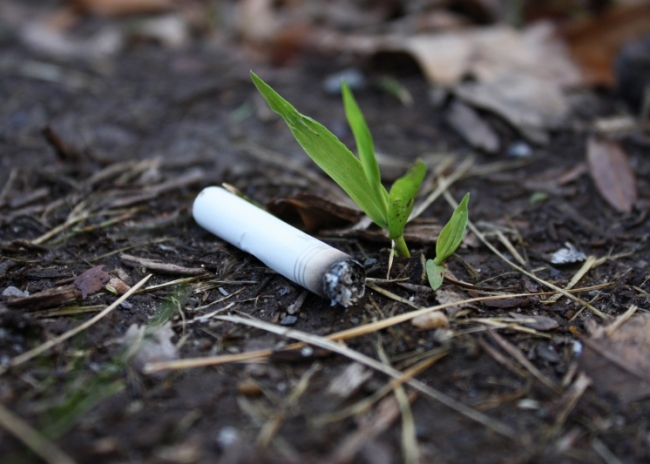
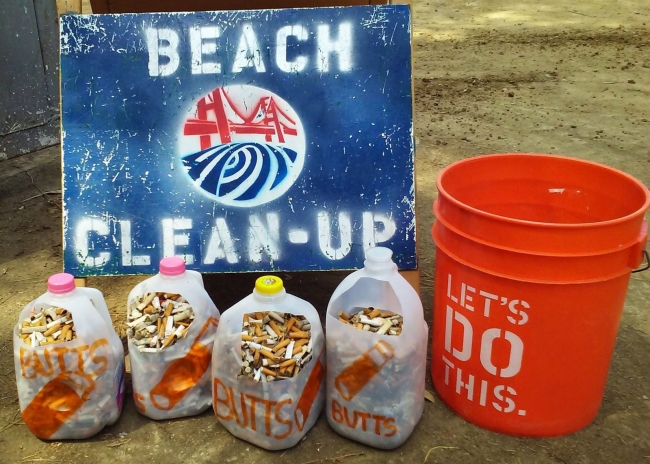
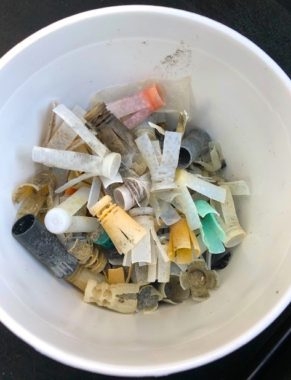
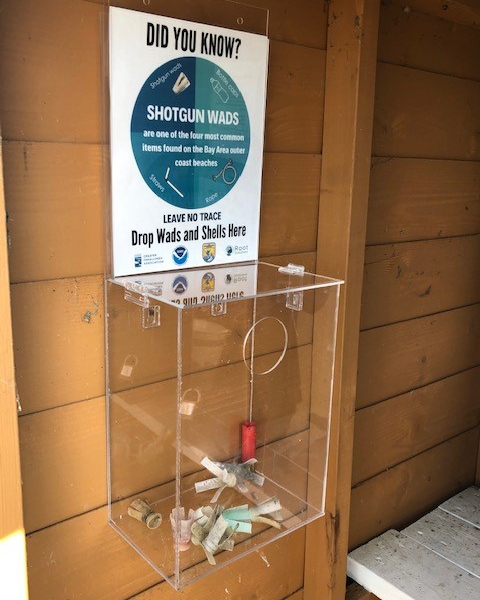
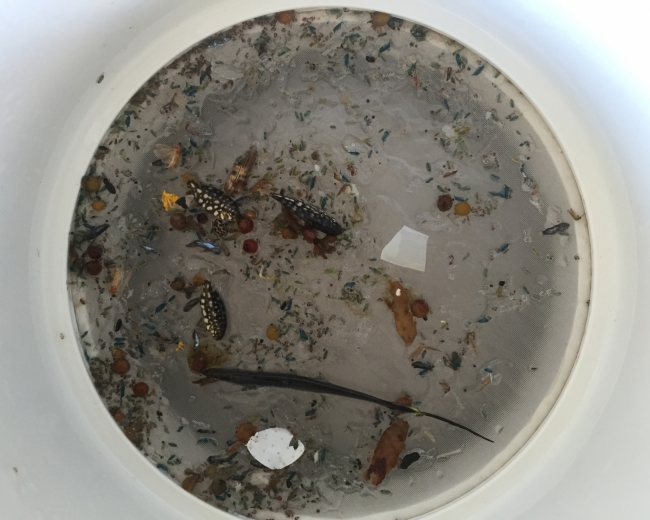
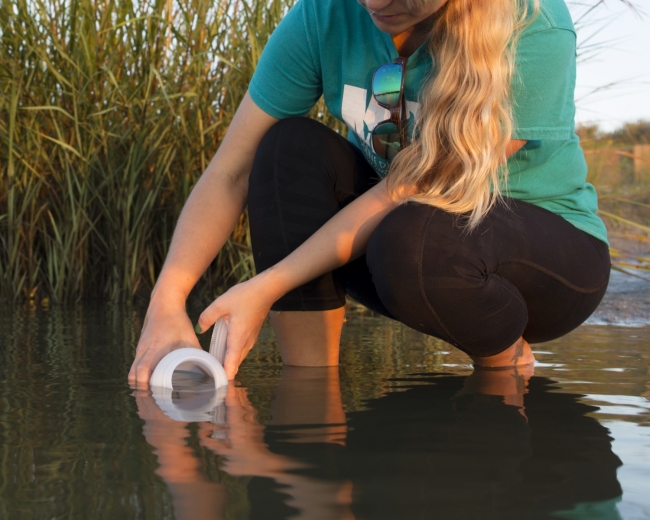
I’m glad there is so much initiative taken in this direction .I am very interested in learning more about citizen science and getting more involved. Thank you.